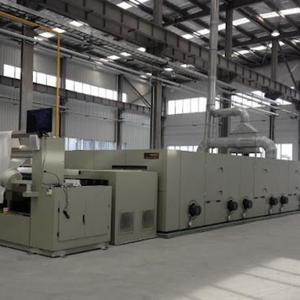TEXTILES SPECIALTY MANUFACTURER IN CHENNAI, INDIA
Green Fission is a leading manufacturer and supplier of textile specialty chemicals in India, offering a wide range of products for printing, dyeing, finishing, and sizing. We collaborate closely with companies and customers in the textile industry to develop high-performance, cost-effective polymers. At Green Fission, our primary focus is on customer satisfaction, delivering high-quality products that consistently meet or exceed the needs of our clients in textile applications.

Printing Chemicals
Textile specialty chemicals are a broad category of high-performance chemicals designed to enhance the functionality, aesthetics, and durability of textiles during various stages of manufacturing, processing, and finishing. These chemicals are formulated for specific applications, addressing unique challenges and providing targeted solutions that are not achievable with general-purpose chemicals. Textile specialty chemicals are used to impart desired properties to fabrics, including softness, water repellency, flame resistance, antimicrobial protection, and improved dye absorption.

Types of Textile Specialty Chemicals
Green Fission manufactures wide range of specialty chemicals in India
Water Repellents and Water-Resistant Coatings:
These chemicals are used to treat fabrics to make them resistant to water penetration, preventing moisture from soaking into the material. They are commonly used in outdoor clothing, tents, and technical textiles to protect against rain, snow, and moisture.Flame Retardants:
Flame retardant chemicals are applied to textiles to reduce their flammability, making them safer for use in industries like transportation, construction, and home textiles. These chemicals help fabrics resist ignition and slow the spread of flames in case of fire, providing enhanced safety in various applications.Antimicrobial Agents:
Antimicrobial textiles are treated with chemicals that inhibit the growth of bacteria, fungi, and other microorganisms. This helps prevent odor, staining, and degradation of fabric, making them ideal for use in medical textiles, sportswear, and home furnishings.UV Protection Chemicals:
These specialty chemicals are applied to fabrics to protect them from the harmful effects of ultraviolet (UV) radiation. UV protection chemicals help extend the life of textiles by preventing color fading and degradation caused by prolonged sun exposure. They are commonly used in outdoor apparel, upholstery, and industrial textiles.Softening Agents:
Softening chemicals are used to improve the texture and feel of fabrics, making them softer and more comfortable to wear. These chemicals are essential in the production of high-quality apparel, bedding, towels, and other textiles where softness is a key feature.Stain-Resistant Coatings:
Stain-resistant chemicals are designed to make fabrics resistant to staining from common substances like oils, liquids, and dirt. These coatings provide long-lasting protection, helping textiles maintain their appearance and performance even after repeated use. They are often used in upholstery, carpets, and workwear.Anti-wrinkle and Anti-crease Chemicals:
These chemicals are used to reduce the tendency of fabrics to wrinkle or crease. They are particularly useful in garments and home textiles, offering a more polished and smooth appearance without the need for excessive ironing.Dyeing and Printing Auxiliaries:
Textile specialty chemicals are essential in the dyeing and printing processes. These chemicals include leveling agents, fixatives, and softeners that help achieve even color distribution, vibrant prints, and enhanced colorfastness. They ensure that dyes bond well to fabrics and resist fading after washing.Coloring and Pigment Modifiers:
Specialty chemicals are used to modify the properties of pigments and dyes, allowing for more intense, vibrant colors, or specific effects like metallic finishes. These chemicals also help in achieving better color fastness, preventing color bleeding or fading.Anti-static Agents:
These chemicals are applied to fabrics to prevent static electricity build-up, which can lead to discomfort, clinginess, and handling difficulties. Anti-static treatments are essential for synthetic fibers, which are more prone to static charges.Water-Soluble Finishes:
Water-soluble finishes are used to give textiles specific temporary properties, such as water solubility, which allows fabrics to be easily rinsed clean. They are often used in textiles designed for medical or technical applications.Biodegradable Finishes:
These specialty chemicals help produce textiles that are environmentally friendly by promoting biodegradability after their life cycle. Biodegradable finishes are increasingly being used to meet sustainability goals in the textile industry.Wrinkle-Free/Non-Iron Finishes:
These specialty chemicals are used in the finishing process to make fabrics wrinkle-resistant, reducing the need for ironing. These chemicals are applied to cotton and cotton-blend fabrics, making them ideal for easy-care apparel and home textiles.

Benefits of Textile Specialty Chemicals:
Enhanced Fabric Properties: Textile specialty chemicals impart specific properties like softness, water resistance, flame retardancy, and antimicrobial protection, enhancing the functionality and appeal of the fabric.
Increased Durability: Specialty chemicals improve the durability and longevity of textiles by enhancing their resistance to fading, staining, and wear and tear.
Sustainability: With a growing demand for eco-friendly products, many specialty chemicals are now formulated to be biodegradable, non-toxic, and more environmentally responsible.
Improved Aesthetics and Comfort: These chemicals can significantly enhance the visual appearance and tactile properties of textiles, making them more comfortable to wear and use.
Tailored Solutions: Textile specialty chemicals provide solutions for a wide range of textile applications, from fashion and home furnishings to industrial and medical textiles, ensuring that specific needs and challenges are met.
- Textile specialty chemicals are essential in advancing the textile industry, enabling manufacturers to produce fabrics that meet modern demands for performance, comfort, sustainability, and aesthetics. Whether for everyday clothing, technical textiles, or medical applications, these chemicals play a crucial role in enhancing fabric performance and quality.
